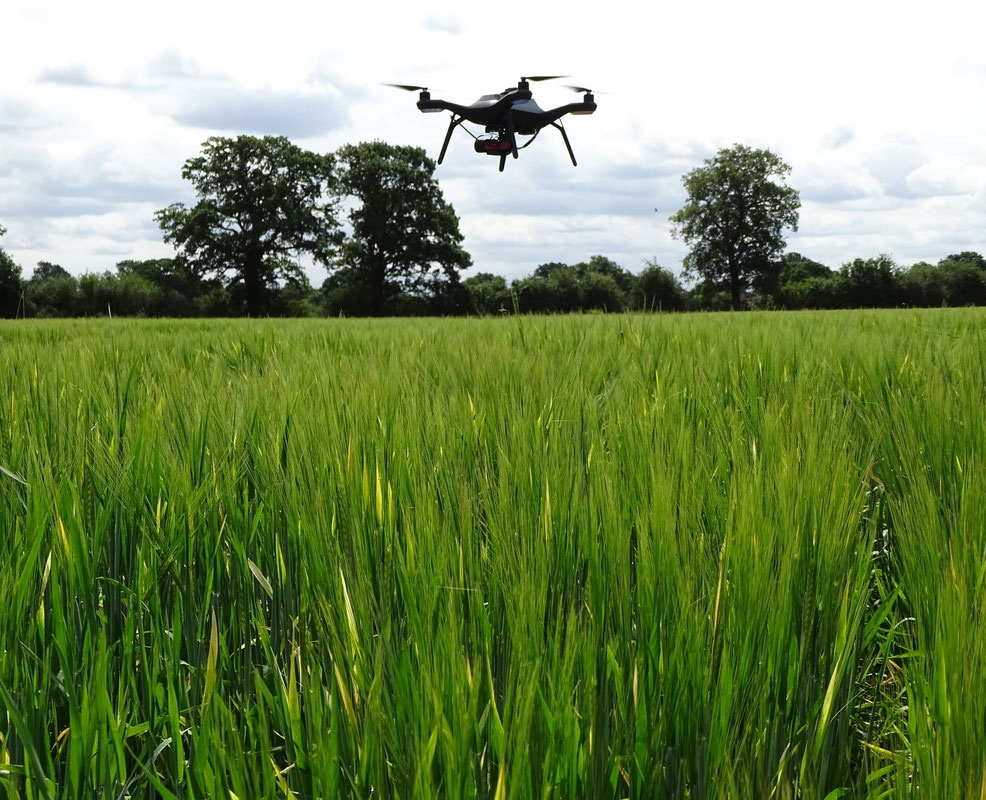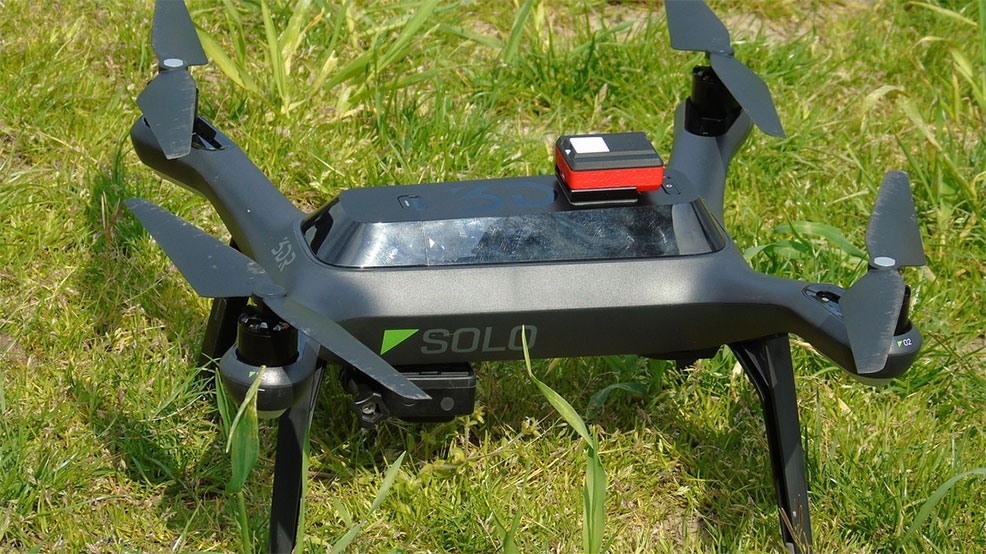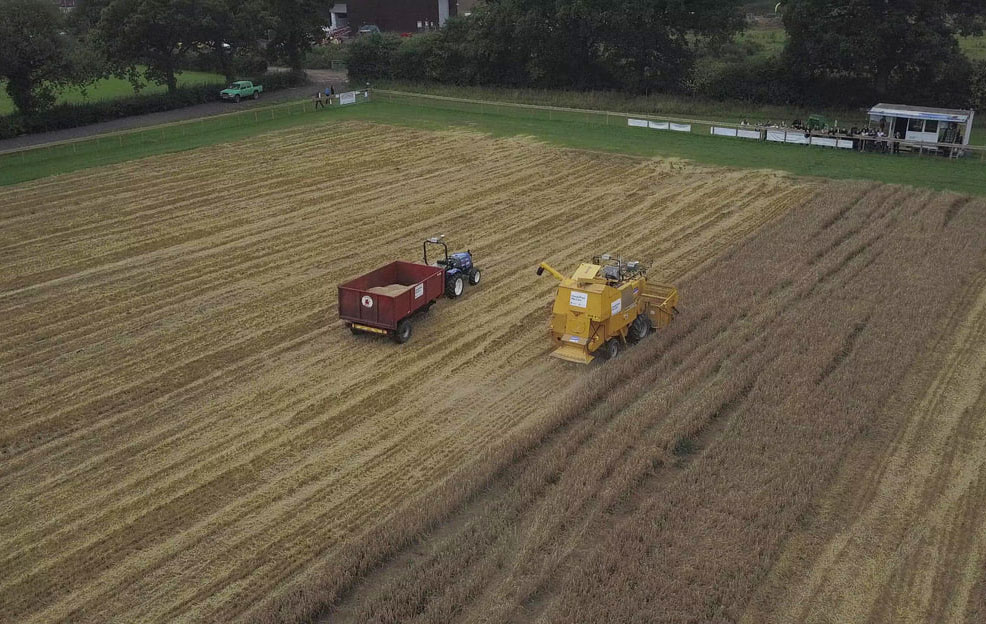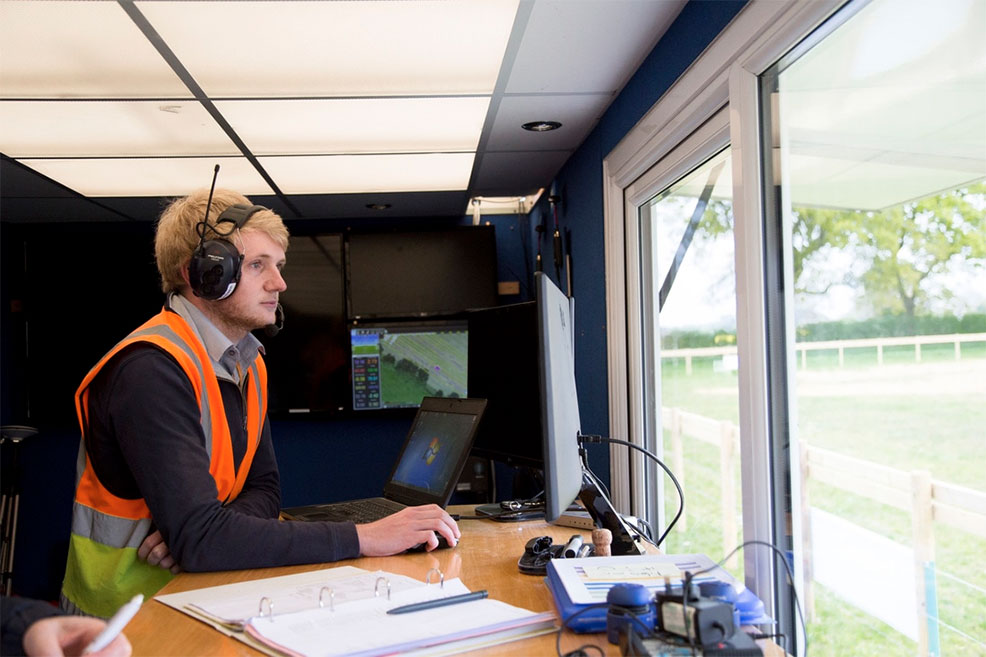
26th February 2018 Barley grown using robot tractors and drones Researchers in the UK have successfully grown the world's first crop of barley using nothing but robot tractors and drones.
Hands Free Hectare is an experimental farm run by researchers from Harper Adams University, United Kingdom. Its aim is to sow, grow and harvest crops of spring barley using only unmanned vehicles, automated control systems and open-source technology. The project offers a glimpse of what the future of agriculture may be like. "We have been able to show the public that this is something that isn't too far ahead in the future, and it could be happening now," explains Martin Abell, mechatronics research engineer. "It has also allowed us to raise the perception of agriculture to the public, so they see it as a forward-thinking industry and something that might attract new people to the industry." With funding from the Agriculture and Horticulture Development Board (AHDB) and industry sponsors, Abell and his colleagues spent a year developing drones that could work alongside driverless agricultural machines with cameras, lasers and GPS systems. Hovering in the air, each drone monitored and assessed the state of the field using a multi-spectral camera, taking images for the researchers. When necessary, samples were collected robotically and returned for a more detailed analysis.
Drones are ideally suited for a situation like this, the team believes, since nothing is as precise or as on-demand as drone imagery. It is not possible to fly a plane at two feet above the ground to monitor soil, for example, while satellites cannot collect data exactly when you want or with sufficient detail. "They were essentially our eyes, showing us where it was strongest and weakest," Mr. Abell explains. "And we aren't walking out and on the crop as much – therefore protecting the crop a bit more." The tractor, combine and chaser bin were also lighter than conventional machines, to further reduce soil damage. Kit Franklin, lecturer in agri-engineering at Harper Adams University and co-creator of Hands Free Hectare, believes that smaller robotic tractors, drones, and other high-precision machinery is what farmers should aim to use in the future. "Big machines are not really any good for precision farming," he said. "The move towards larger machines can also be looked at as a reason for reduced labour levels on farms and for limited time windows to carry out vital tasks, a sense of 'one-upmanship' and the perception that bigger machines would solve compaction issues. Maybe we need to rethink that idea that more power is key. Around 80% of the energy you put into doing tillage is simply undoing all the damage you have done."
Hands Free Hectare achieved its goal of autonomously seeding, spraying, monitoring and harvesting crops with a relatively small budget of £250,000 ($350,000). The team hopes their project, covering 100 x 100 metres, can be repeated with more accurate technology for better remote agronomy. Eventually the system could be scaled up and commercialised, boosting crop yields and farming efficiency globally. "Our project proved that robots can sow, manage and harvest a crop. And we're going to do it again this year to prove it wasn't a one-off fluke. This year we hope to fine-tune the technology to make it run more smoothly and further prove its merit in the future of the industry," Franklin adds. "Our findings from our original trial show that cheaper precision farming technology is possible and that automation could work in a commercial scenario. We need to take our 300-horsepower tractors off the soils, because they are not doing any good at all, and then put the driver in charge of some automated tractors." "I am sure if we can make it happen on that budget, they can do it commercially with something that is user-friendly for farmers," says Abell. The barley grown in this latest test will be put to good use, he explains: "We are currently getting our barley malted to produce a hands-free beer and it is in the process at the moment. So hopefully in a couple of months we will have a hands-free beer, which will be a nice finish to the project, to celebrate drinking some of that."
Comments »
If you enjoyed this article, please consider sharing it:
|










